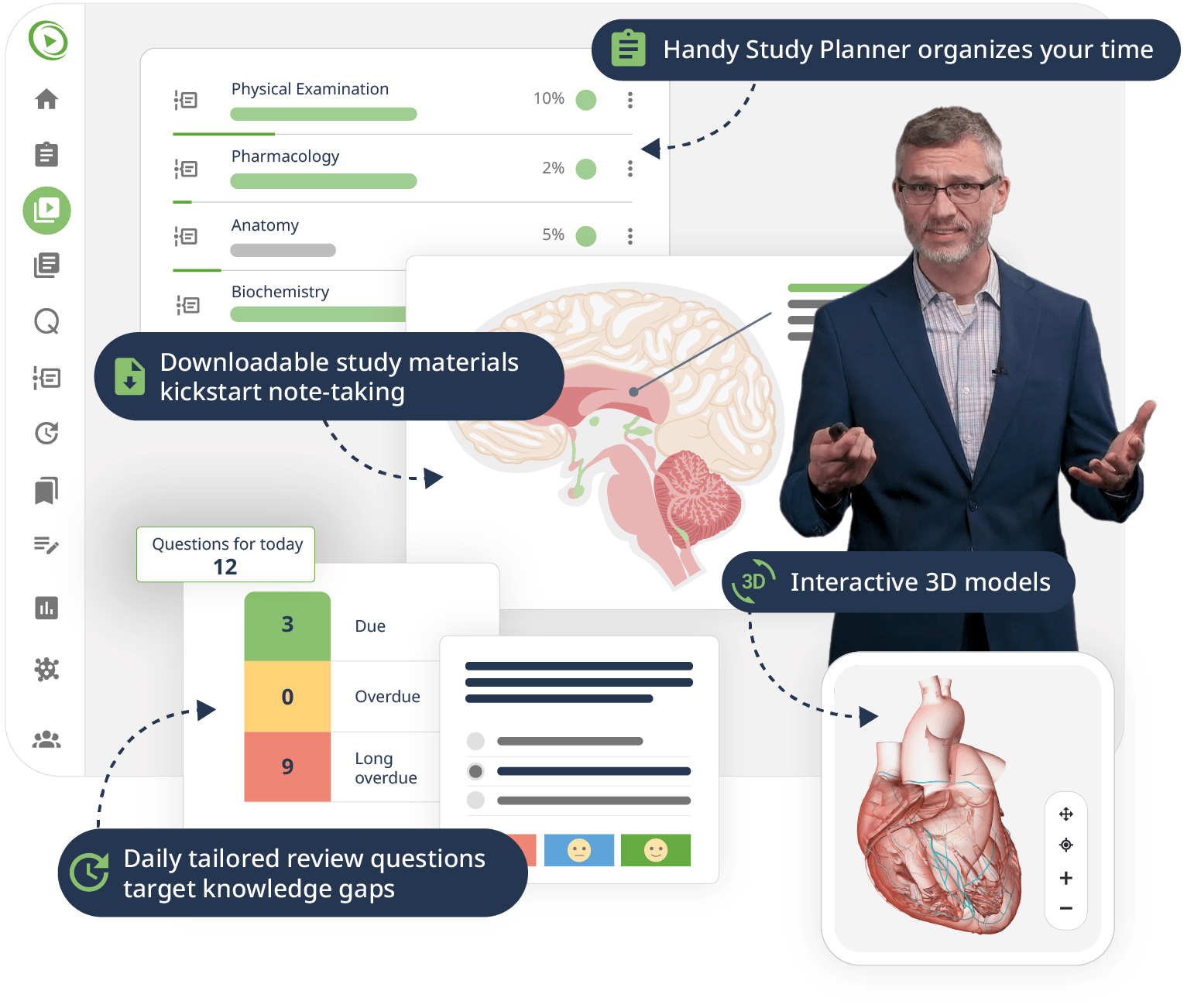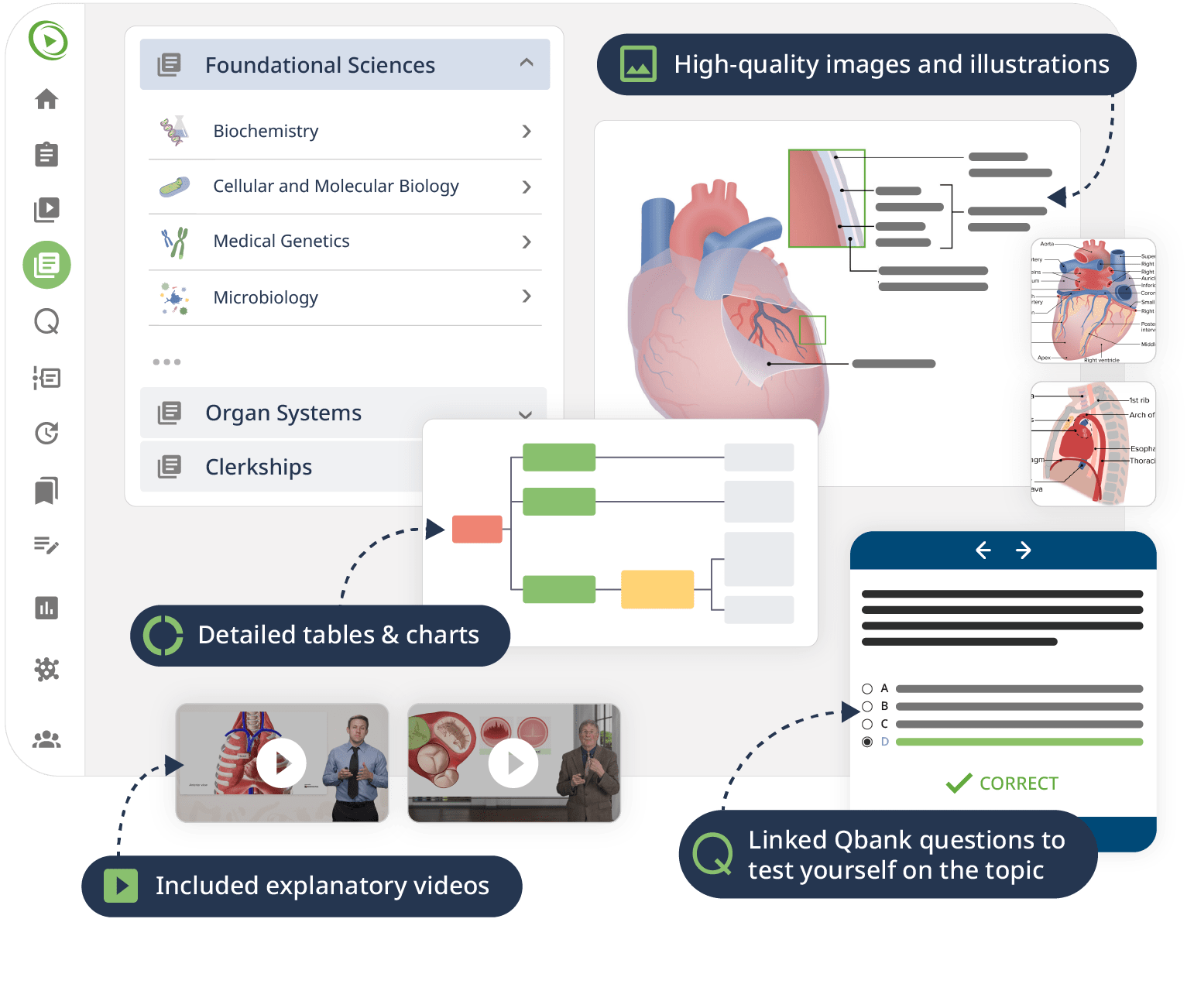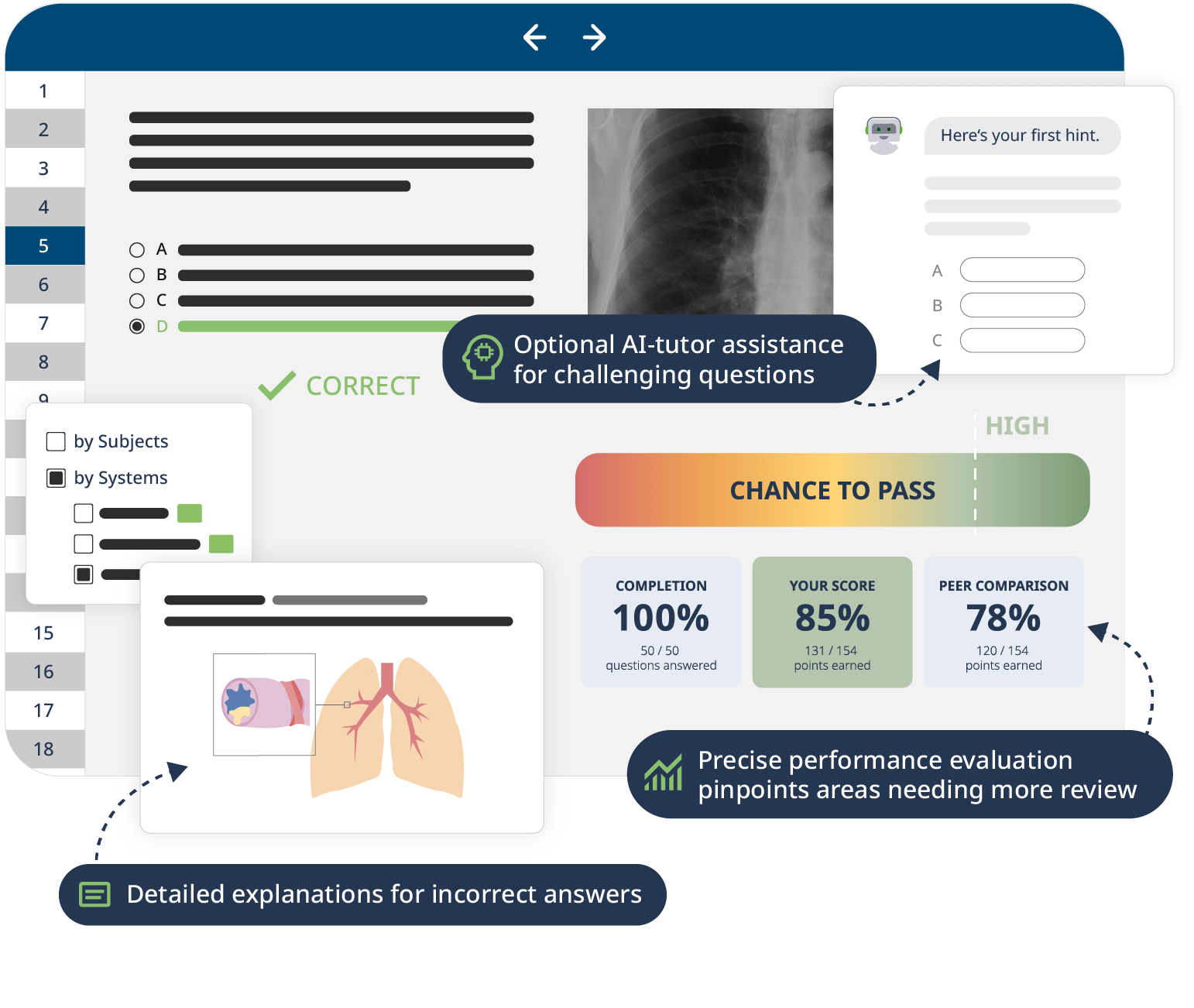Start your online neurology class
with Roy Strowd, MD from the Wake Forest School of Medicine
Many neurological conditions can profoundly impact cognitive and motor functions, independence, and quality of life. Correctly identifying neurological conditions early can prevent or minimize long-term damage, and effective management of chronic conditions can significantly improve patients’ lives. However, their often subtle and varied presentation makes correct diagnosis a learning curve.
This course covers the key points about critical neurological conditions, including cerebrovascular events like strokes and transient ischemic attacks, seizures and epilepsy, inherited and acquired neuromuscular diseases, central nervous system infections and tumors, balance disorders, and headaches. Each section will detail the pathophysiology, signs, diagnosis, and treatment of the conditions, and use case-based presentations training you to apply the content to realistic diagnostic scenarios.
The combination of Video Lessons with interactive quiz questions, downloadable study materials, and a USMLE-style Qbank makes it easy to understand and retain the topics. By the end of this course, you will have a thorough understanding of clinical neurology and be prepared to diagnose and manage neurological conditions effectively.


















